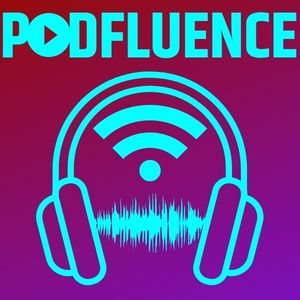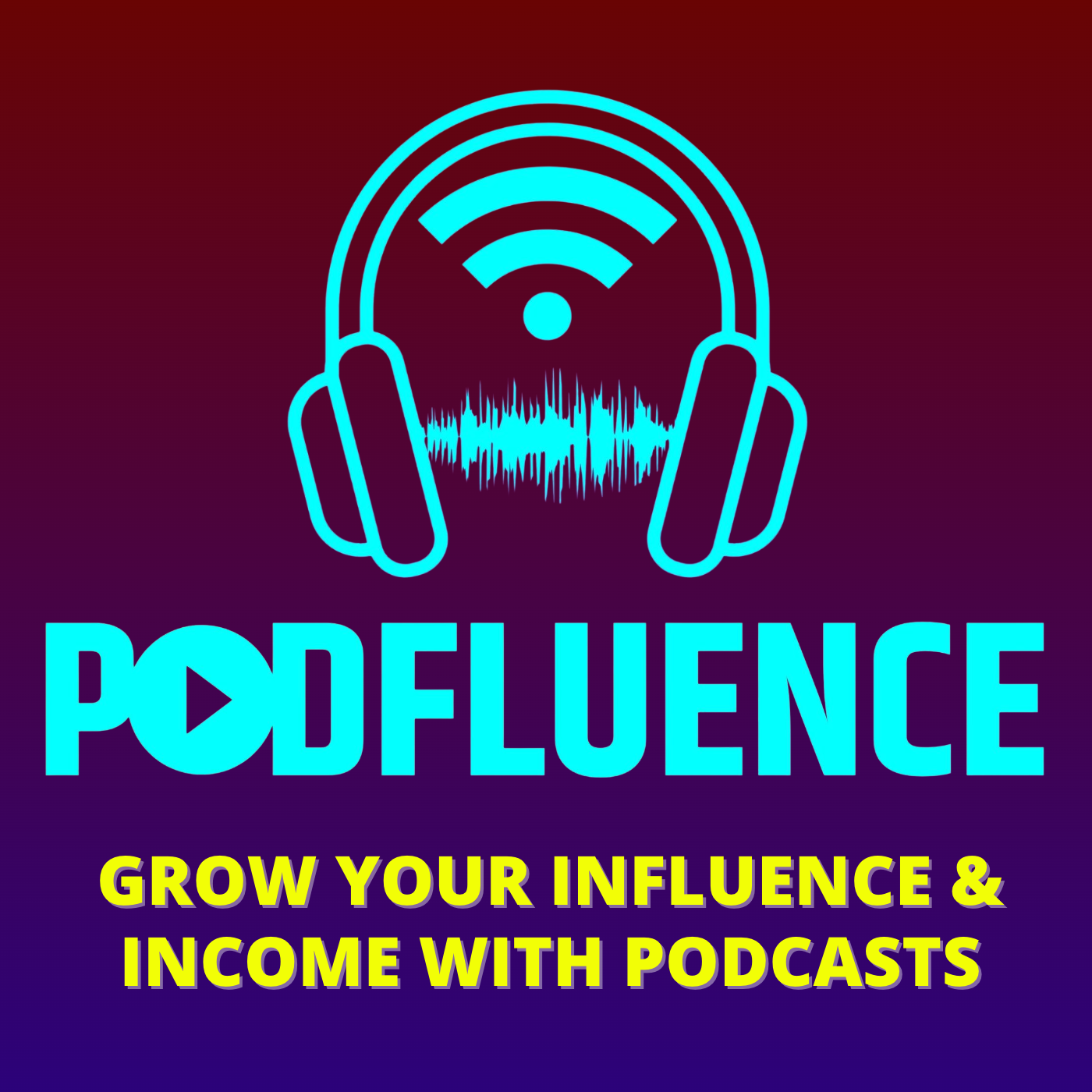Episode 151
The Confidence Trick
Do you really want to have Podfluence? You can't have charisma without having confidence but many of us hold ourselves back from feeling confidence or showing up in professional situations with the necessary level of confidence needed for people to pay attention. Remember those substitute teachers at school? The first sign of any weakness and lack of confidence from them would lead to the class going wild and terrorising them.
How can you be confident and charismatic if you've never felt able to before?
How can you be charismatic without confidence?
What's the trick to confidence?
Want to find out what podcasting could do for your business? Take this short quiz https://mrqz.to/podcastpossibilities
Come and join other professionals who are building their authority through podcasting in the Podfluencers Facebook Group https://bit.ly/3aesFPJ and get your free download of How to build authority with podcasts
Did you enjoy the show? Did you learn anything new or useful? If you did, then the best way to show your appreciation is by sharing the show with your online network. Tag me and I'll give you a shout-out on an upcoming episode. Leave a review and I'll read it out on the show.
Of course, if you REALLY liked it, you're welcome to support the show financially too using the link below.
Support the show (https://speakinginfluence.supercast.tech/)
Mentioned in this episode:
Podfluence Weekly
Join us for the official Podfluence Weekly newsletter https://present-influence.ck.page or Subscribe on LinkedIn https://www.linkedin.com/build-relation/newsletter-follow?entityUrn=6882642444815519744
Transcript
Are you confident?
John:Chances are that the answer to that is it depends.
John:For many of us, it depends on the situations we find ourselves in.
John:If we're with people we feel comfortable with doing things we know how to do, or
John:we feel psychologically safe and secure, we're more likely to feel confident.
John:If we're in strange surroundings with people, we don't know, maybe
John:doing things that are new to us, or maybe feeling unsafe, we're
John:far less likely to feel confident.
John:Confidence is a key aspect of charisma, which is why I'm
John:taking a look at it today.
John:It is likely a topic that we will return to a number of times in the future.
John:But it is the topic of this week's episode of Podfluence, so if you are looking
John:to find ways to become more confident, more charismatic and to apply that into
John:your personal and professional lives.
John:You're going to enjoy this week's episode of Podfluence.
John:some people seem to be confident, no matter the situation.
John:And there are those who just seem to lack any shred of confidence at all.
John:When it comes to influencing others, confidence is a useful thing to have
John:because it's a very appealing quality.
John:We tend to assume that confident people, are usually justified in that confidence
John:unless they demonstrate otherwise.
John:The late philosopher, Bertrand Russell once commented that one of the biggest
John:problems with the world is that fools and fanatics are so sure of themselves whilst
John:intelligent people are so full of doubts.
John:I can't help, but agree.
John:We now know, thanks to the work of Dunning and Kruger that people are often
John:ignorant of their own shortcomings and we do have a tendency to think we're
John:better at things than we really are.
John:People who commit to daily learning at least have more of a tendency to realize
John:and recognize how much they don't know.
John:My next episode is going to be with author Lee Carter and Lee is an expert
John:in persuasion and she has written an excellent book on persuasion in a
John:world where facts don't seem to matter.
John:There are so few new or original books on this topic that I certainly Sat up
John:and paid attention when I read Lee's book, which she was kind enough to
John:send me an advanced copy of, although it is out now and available to buy.
John:We do buy into certainty to such a degree that we're far more likely to believe
John:someone who seemed certain than someone who perhaps just lays out the facts.
John:Facts don't move as emotionally.
John:They don't create much response at all.
John:But certainty does, no matter how wrong the certain person may be.
John:This is one of the reasons why fear is so powerful as a social control mechanism.
John:We don't usually rationalize our fears and they can end up irrationally
John:controlling our behaviors until we find a way to approach them more rationally.
John:I do have to wonder why confidence is not one of Robert Cialdini's
John:seven weapons of persuasion when it is such an obvious influencer.
John:Certainly it does relate to other persuasion tools like consistency
John:and social proof and authority.
John:But I'd be curious to know why he perhaps didn't consider it a tool by itself.
John:I hope to get the chance to ask him that myself someday.
John:Confidence tends to make people seem more attractive, get listened
John:to more and seem more charismatic.
John:I suppose it's how we're wired.
John:Before human intelligence developed significantly, we operated more
John:on instinct and survival mode.
John:We didn't have the reasoning tools to argue a point or make a case, we
John:went with our guts, with our instincts and emotions, because that was our
John:best navigational tool through life.
John:Whilst our brains have evolved somewhat and higher intelligence
John:has emerged, we are not so advanced that we have left those emotional
John:navigation systems behind completely.
John:Probably we never will.
John:A confident fool is far more likely to be believed than an uncertain genius, which
John:is perhaps just another way of expressing the earlier quote from Bertrand Russell.
John:Most of us lack the critical thinking skills to be able to see the flaws
John:in our own thinking, or to be able to determine that our main sources
John:of information are heavily biased and designed to maintain status quo.
John:Probably the last thing any government wants is a nation of critical thinkers.
John:And so we don't really get taught those skills in schools, or presented
John:with balanced arguments in the media.
John:We generally get told what to think and what to believe.
John:And we often get slammed or even shunned if we dare to question accepted orthodoxy.
John:I've never been, especially confident of my looks now, I'd go as far
John:as to say that I grew up thinking myself to be very unattractive.
John:These days, I can much less about such things.
John:And I'm also wise enough to know that no matter what you look like, there's always
John:people who will find you attractive and for all sorts of reasons, many beyond
John:the superficiality of looks alone.
John:It's hard to believe that when the media constantly bombards us with
John:ideas of what is attractive and what is not, when people who may be carrying
John:some extra weight are simply called ugly or become the butt of a joke.
John:There is every reason for us to think that look some more important
John:than they are, but only to a degree.
John:Back when I was a flight attendant, I remember working with a German crew
John:member who looked fairly similar to me.
John:We were kind of the same build I would have classed as, as having
John:a similar level of attractiveness.
John:Although.
John:I don't know if he would have agreed with that, but he had something that I didn't.
John:Confidence and lots of it.
John:Some may think that his confidence was unearned or unjustified.
John:But he had it and I could see right then and there that it made him at least
John:10 times more appealing than I was.
John:Confidence and charisma are attractive attributes that people are naturally
John:drawn to, which tend to make a person seem more physically attractive too.
John:I think we greatly underestimate how much of a difference, things like
John:confidence and charisma make to a person's perceived attractiveness.
John:But if you've ever had the experience of walking out of the hairdresser or
John:the beauty salon, feeling your most attractive self and catching yourself
John:in the mirror, thinking, Ooh, I'm looking hot today, your whole energy
John:and demeanor become more attractive in the very magnetic sense of the word.
John:You may even start to notice more people looking at you,
John:maybe even flirting with you.
John:Marilyn Monroe talked about being able to turn Marilyn the movie star
John:on and off as an energetic thing.
John:And we could do something similar and we often stop ourselves from
John:doing it because we fear what other people will think of us.
John:She could keep her energy directed inwards and walk through a crowd of
John:people without being recognized, or she could project it out into the
John:world and watch crowds gather around.
John:Here's how I like to think about confidence then; as something we can
John:turn on and off situationally and quite probably should do so more often
John:than we do, but we don't usually feel safe enough to do so without risk.
John:I'm not suggesting you take the risk, except that's
John:exactly what I am suggesting.
John:Confidence like enthusiasm, should not be something we only get the feel when
John:the external circumstances are right because otherwise it's purely conditional.
John:How about instead, we give ourselves permission to act with confidence, have
John:confidence in who we are and show up with confident, not arrogant energy.
John:How about we take responsibility for being the cause of our own confidence
John:and enthusiasm in how we show up each and every day rather than living
John:in the external effects of people, environment and media, which may
John:leave us feeling less than optimal.
John:You know, I was watching YouTube this morning and I realized afterwards I was
John:watching a video about some religious and political extremism in United States
John:and I found it kind of terrifying.
John:And then afterwards, I was asking myself, why did I actually watch that?
John:Is it affecting my life right now?
John:What I may be have been better off to have not watched 20 minutes of a
John:video that was making me feel terrible.
John:I think the answer is undoubtedly.
John:Yes.
John:I see the same thing on other social media platforms that I use.
John:We get into habits of using them and we get somewhat addicted to using them.
John:And yet, I think it's worth taking that time to at least question ourselves
John:afterwards and ask, how did we feel?
John:Has that benefited me in any way?
John:Would I be feeling different or maybe even better if I hadn't spent that time
John:on Twitter or Facebook or whatever it is, being made aware of some stuff that might
John:actually be affecting you emotionally.
John:One of the hardest things to do in life is to show up with good energy,
John:confidence, and enthusiasm when life is getting you down or when the
John:world seems like a horrible place.
John:People will possibly think you're mentally unstable if you're not being
John:ground down by life and stressed out by how terrible things are.
John:Well, let them.
John:Remember confidence is not about giving yourself permission to
John:act like an arrogant a-hole.
John:It's about giving yourself permission to speak your heart.
John:To consider yourself a worthy the equal, even to those you perceive as having a
John:higher status, and not holding yourself back with your ideas and participation
John:in making things better whenever you can.
John:It's more about letting go of the fear of others judging you negatively
John:or making a bad first impression.
John:More importantly, it's about giving yourself permission to shine the best
John:of yourself out into the world without fear, without shame, without doubt.
John:Confidence is a key aspect of charisma.
John:And the more of it you can choose for yourself.
John:The more attractive you will appear both personally and professionally.
John:Mix this with the other key ingredients for charisma and you're well on your way
John:to becoming a key person of influence.
John:At the very least you will start to notice your voice being heard more,
John:people paying more attention to you, and a greater willingness to speak
John:up with your thoughts and ideas.
John:But remember though confidence is not just in thought and mind.
John:It can't be something that you just fake it till you make it.
John:It must come through in your actions too.
John:One of the fears that I think people have with confidence is self-delusion.
John:And worrying that other people might start to think that they've got it
John:all wrong and that everyone else may think that they're an idiot, whereas
John:they think they're quite wonderful.
John:In reality that doesn't seem to hold certain people back and they can
John:still have great levels of success even with an earned confidence.
John:We must understand that when we develop the skills of charisma,
John:we become more influential.
John:Even if we're wrong about stuff, people are more likely to pay attention to us.
John:Think of all the people you may be aware of who have great charisma, who are very
John:well-known and maybe wrong about stuff, maybe sometimes proven wrong about stuff,
John:and yet their voices are heard much more because of who they are because of the
John:elevated status that they have been given.
John:And status is definitely an important aspect of charisma that we will take a
John:look at some point in the future as well.
John:Some key things to look at there.
John:But for now.
John:I want to leave you with this take action on confidence.
John:If you can find at least one situation in your life where you could
John:present yourself more confidently, work on that work on improving
John:your competence in that one area.
John:For me, I started doing that through public speaking and
John:attending Toastmasters meetings.
John:And I found that I became more able to speak confidently in front of people.
John:More comfortable to do that, even to a point where I was able to get up and
John:deliver a seven minute talk off the top of my head, complete improvisation.
John:Something I never could have done without having developed
John:the confidence to get there.
John:So you understand, confidence is something you can and must develop if you are to
John:become a charismatic speaker, presenter and podcaster or podcast guests.
John:So that's it for this week's episode of Podfluence.
John:I would love you to join me next week, where I, as I mentioned, my
John:guest is Lee Carter, and we're talking about persuasion in the world where
John:facts don't seem to matter anymore.
John:Definitely a great episode to tune into I thoroughly loved Lee's book and I really
John:enjoyed the chat that we had as well.
John:I know you're going to get a lot of great value from that.
John:I've been waiting to bring this to you for so long.
John:Unfortunately, COVID kind of interfered with my plans last month, just as
John:we were getting back in to relaunch and publishing regular episodes, I
John:got struck down with the deadly bug.
John:Thankfully I have pulled through that and everything is all clear and
John:I'm very excited to be getting back into regular episodes of Podfuence.
John:If you are not already subscribed to the show please do give us a follow.
John:If you're on apple podcasts or follow us on Spotify or whichever podcast
John:server you are listening to the show on.
John:I've got some big plans for Podfluence in 2023.
John:And we'll be releasing more details of that pretty soon.
John:For now I just hope you'll stay tuned into the shows And if you're
John:not already subscribed to the Podfluencer weekly newsletter,
John:please do come and join us there.
John:I'll be adding lots of additional information and content in
John:there too, as well as updates on each episode that comes out.
John:For now wherever you're going, whatever you're doing, have
John:an amazing rest of your day.


